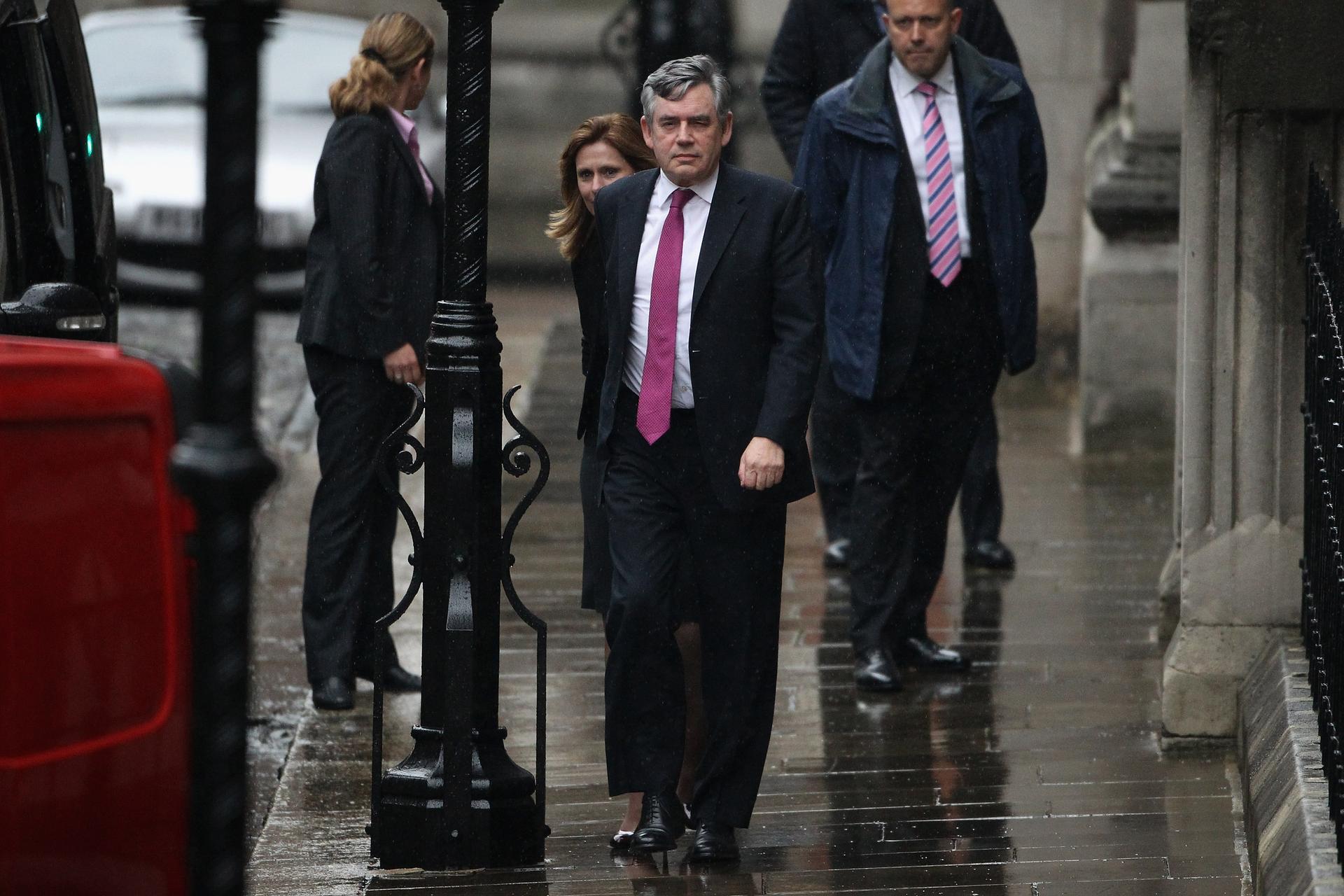Gordon Brown appointed UN special envoy for global education
Former Prime Minister Gordon Brown and Sarah Brown attend The Leveson Inquiry on June 11, 2012 in London, England.
Gordon Brown, Britain's former prime minister, has been appointed as the UN's new special envoy of Global Education, his office announced Friday.
Beginning in September, Brown will lead the UN initiative "Education First" to raise funds to finance schools and train 2 million teachers. The mission also aims to enroll an additional 61 million students worldwide by 2015, according to the Guardian.
"[Brown] will focus on countries with the highest burden of children out of school, recognizing that nearly half of out of school children are in countries affected by conflict," the statement said. "He will help bring about change, mobilize resources and generate additional and sufficient funding."
More from GlobalPost: Gordon Brown: G20 summit is the 'last chance' to save the eurozone
In January, the British politician called for the creation of a global fund to remedy the "hidden and silent emergency in education," the Huffington Post UK reported. He said at the time that the United Nations' goal of universal primary education by 2015 had ground to a halt, and asked the developed world to jumpstart the mission.
“It is a great privilege to be invited by the UN Secretary-General Bank Ki-moon to serve as his Special Envoy for Global Education," Brown said in response to his new diplomatic role. "Ensuring that every child in the world has the opportunity to go to school and to learn is a longstanding passion of mine, and I aim to learn from other Special Envoys such as President Clinton, Kofi Annan and Ray Chambers."
"Education breaks the cycle of poverty and unlocks better health and better job prospects," he continued. "My hope is that the Secretary-General’s ‘Education First’ initiative will accelerate progress not only towards the Millennium Development Goal on education, but across all the goals."
More from GlobalPost: Gordon Brown giving evidence at Leveson Inquiry into UK media ethics
UNESCO has said that the number of children out of school in 2015 could be higher than the 70 million today if the current educational climate continues, the Guardian reported. They recommended that the world's poorest 46 nations needed $16 billion a year to meet the goal of universal education.
The story you just read is accessible and free to all because thousands of listeners and readers contribute to our nonprofit newsroom. We go deep to bring you the human-centered international reporting that you know you can trust. To do this work and to do it well, we rely on the support of our listeners. If you appreciated our coverage this year, if there was a story that made you pause or a song that moved you, would you consider making a gift to sustain our work through 2024 and beyond?
